Winter plants for privacy – 10 resilient choices for natural screening
Create a botanical boundary that looks beautiful throughout the colder months and beyond

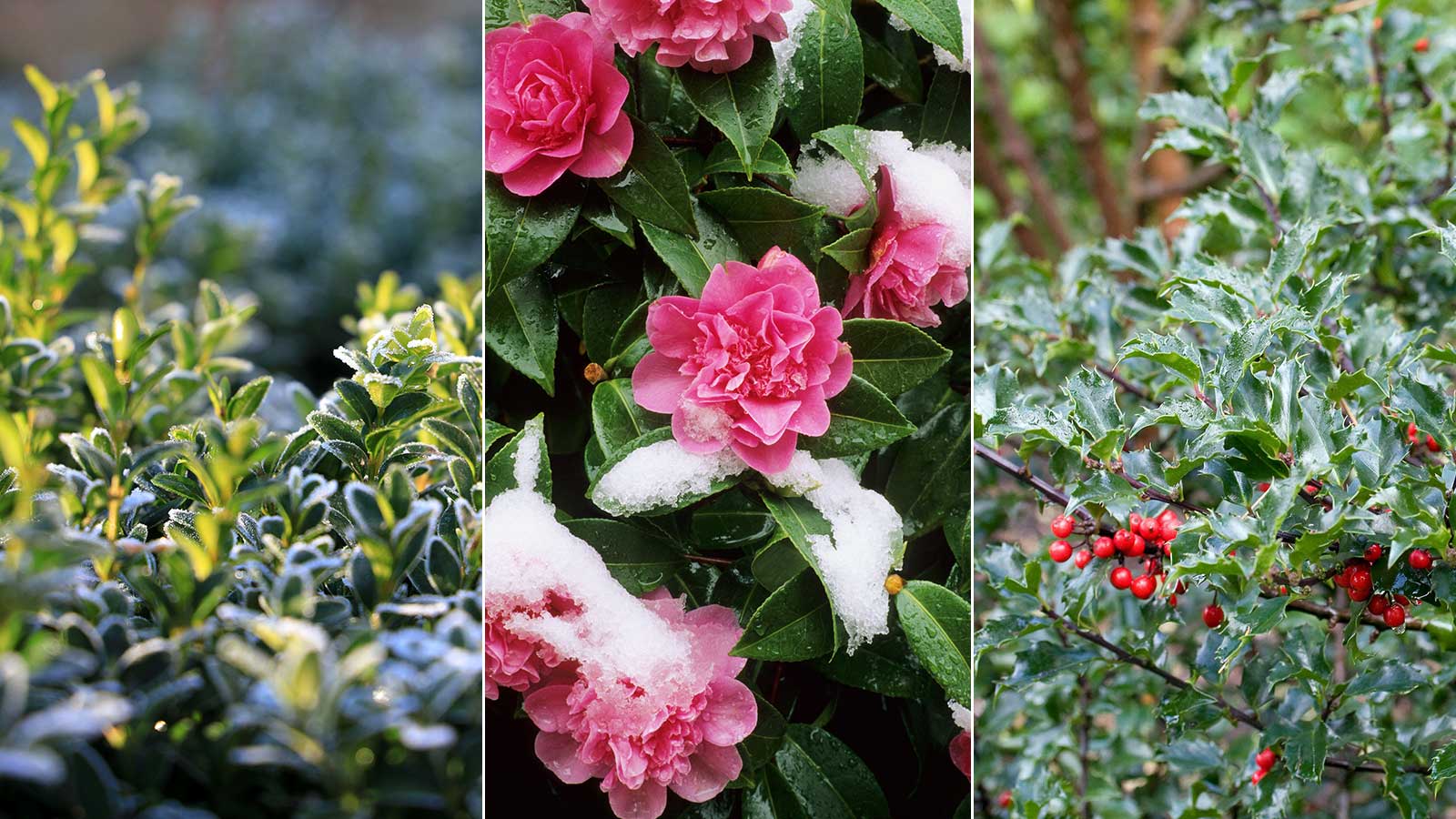
Once the final flush of vibrant fall foliage has dropped and been cleared away, our backyards turn into more demure spaces. Many plants die back and enter dormancy, until spring reawakens their growth. However, some tougher varieties hold onto their color and form despite the cooler temperatures – and even produce berries and flowers, too.
The taller and denser of these plants are ideal for creating garden privacy, as they'll maintain their screening effect throughout the season and beyond. Scrambling evergreen vines can also come in useful when combined with a trellised fence. So, if you're looking for ways to block the neighbor's view of your patio or divide your outdoor space into more private sections, consider adding these to your plot.
10 privacy plants for the winter months
From evergreen hedging plants to flowering climbers, these privacy plants are pretty and practical additions to the winter garden.
1. Evergreen holly
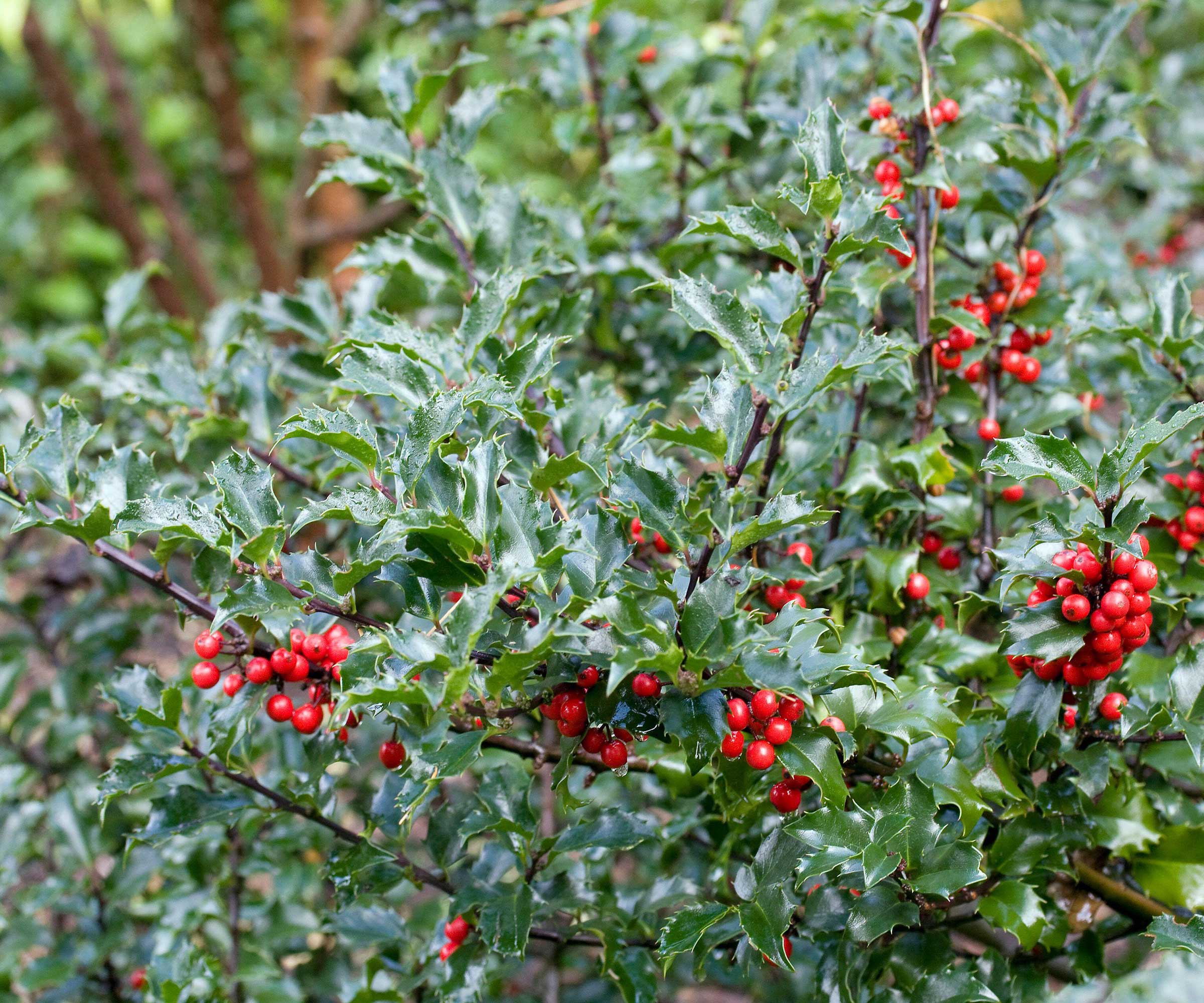
'Blue Princess' holly
- Height: 3-30ft
- Width: 1-20ft
- Hardiness: USDA 3-9, depending on variety
- Best for: Christmas decor
Give your garden a dose of festive spirit with an evergreen holly, such as 'Blue Princess' from Nature Hills. The jolly red berries contrast against the dark green foliage like jewels, and make these shrubs excellent plants for attracting birds. Sprigs can be snipped and brought indoors, too, for decorative holiday displays.
What's more, hollies will continue to provide screening all year with their dense foliage. Plus, the spikier varieties can be useful boundary plants for upping the sense of security.
Hollies are easy to look after, with good pest and disease resistance. Mulching is beneficial for healthy growth, while pruning will keep them neat.
As an alternative option, try the columnar 'Sky Pencil', also from Nature Hills, with dark, purple berries. Its narrow structure is perfect if you're looking to create privacy in a small backyard.
Design expertise in your inbox – from inspiring decorating ideas and beautiful celebrity homes to practical gardening advice and shopping round-ups.
Top tip: Note that many holly varieties, including 'Blue Princess', need a male holly plant nearby to produce berries. An exception is the 'Needlepoint' holly, available from Nature Hills.
2. Winter jasmine
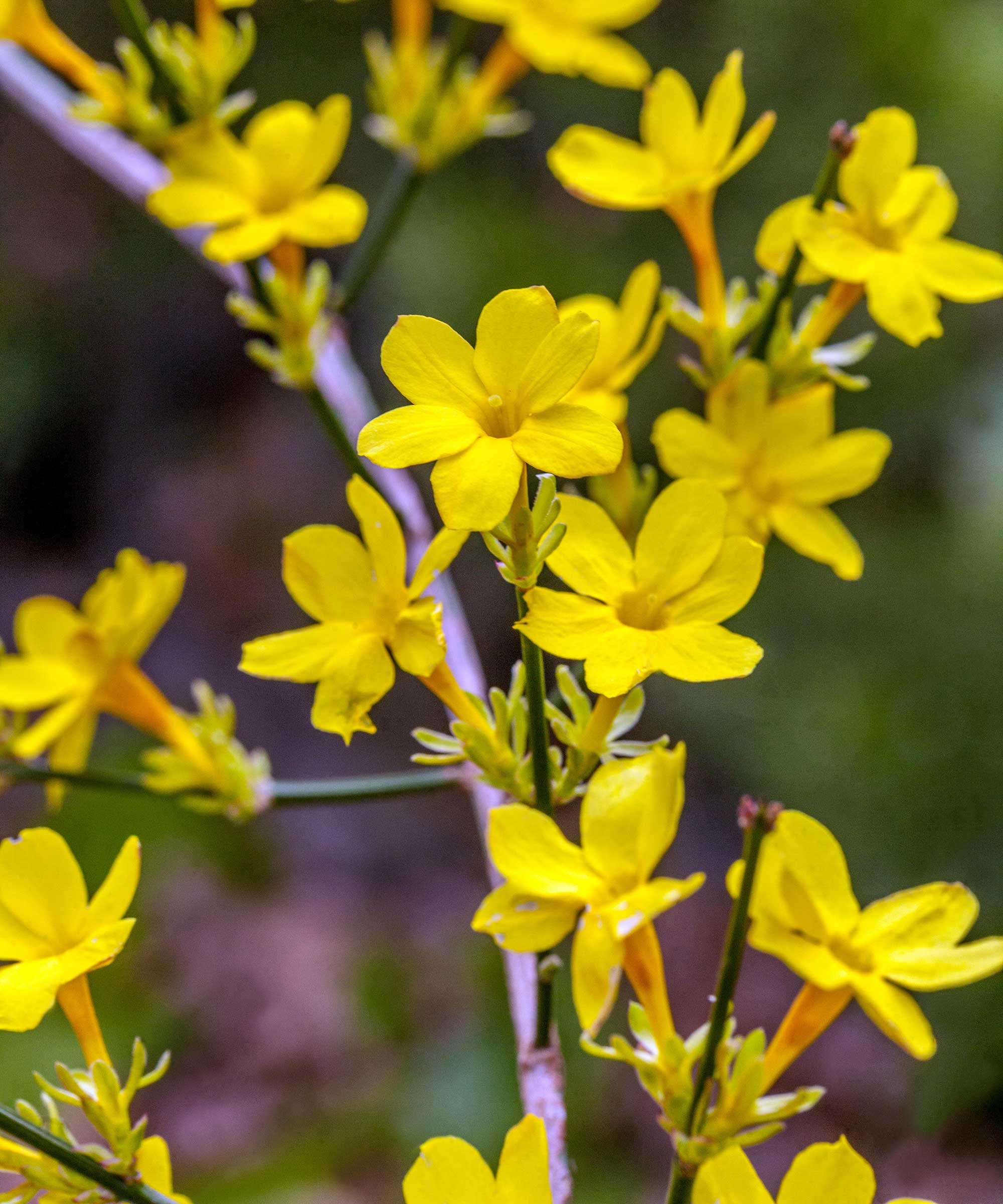
Winter jasmine dazzles with its vibrant blooms
- Height: 4-15ft
- Width: 3-6ft
- Hardiness: USDA 6-10
- Best for: Yellow flowers
Winter jasmine is one of the best winter-flowering shrubs to plant in fall, and can be used in an array of planting situations. Trained up a trellis, it will provide an attractive screen for many months of the year.
Although it drops its leaves in the fall, vibrant, yellow blooms then appear to brighten the winter landscape. These are followed by fresh foliage in the spring. Plant it somewhere sunny for best results.
Note that this type of jasmine can become unruly and needs annual pruning to keep it within its allotted growing space, says gardening expert John Negus. 'In spring, prune immediately after flowering. The flower buds develop on shoots produced in the previous season, so by pruning early in the year, the new growth has time to form flower buds over the summer.'

John has been a garden journalist for over 50 years and regularly answers readers' questions in Amateur Gardening magazine. He has also written four books and has delivered many talks over the years on horticulture.
3. Winter-flowering clematis
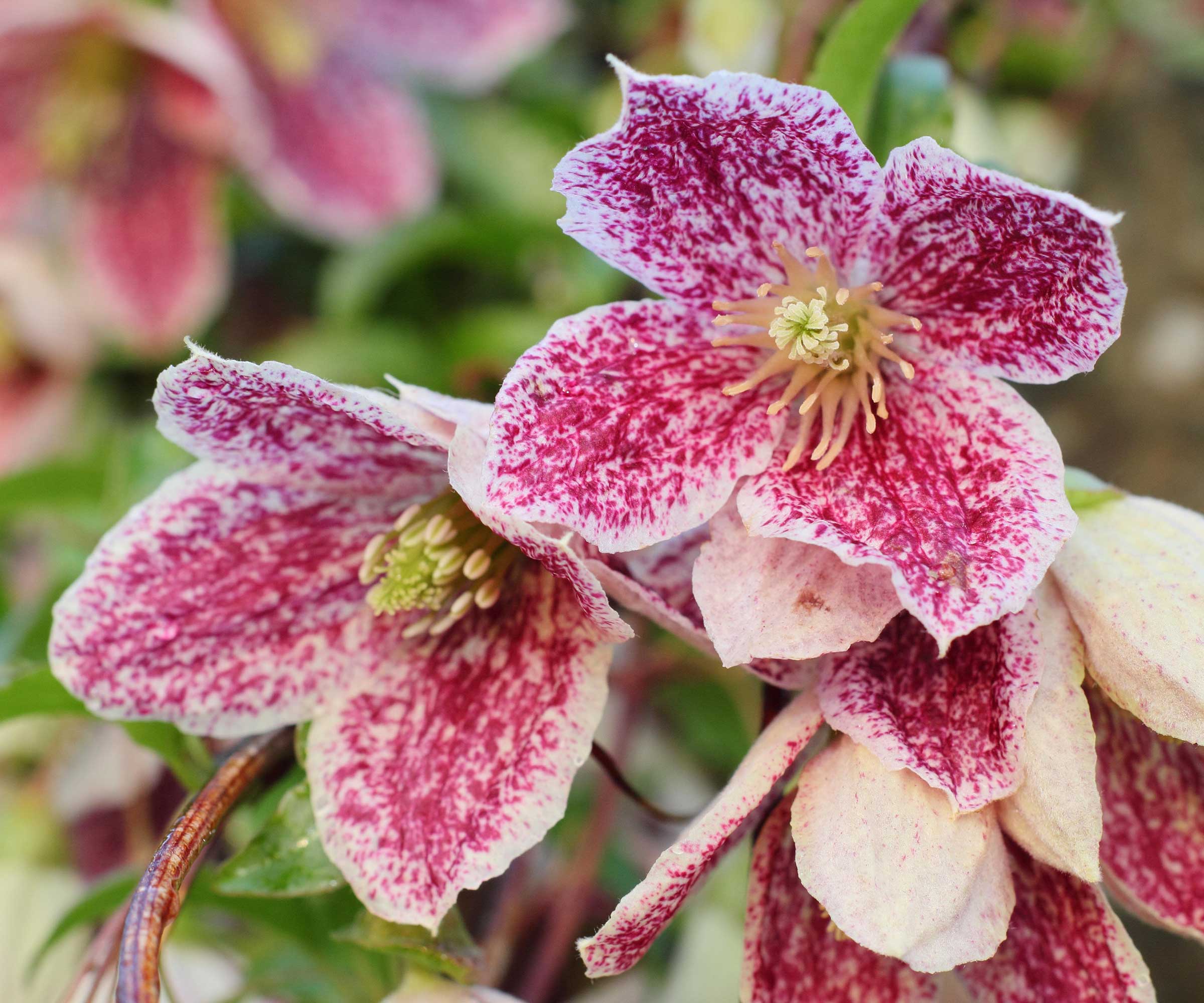
'Freckles' clematis has pretty winter flowers
- Height: 6-40ft
- Width: 3-30ft
- Hardiness: USDA 7-9
- Best for: Evergreen climbing plant
Evergreen, winter-flowering varieties of clematis are an alternative yet equally attractive climbing plant that, again, can be combined with a trellis.
The Clematis armandii 'Snowdrift', available from Fast Growing Trees, is a particularly lovely example. This drought-tolerant plant has elegant, white flowers with yellow-green centers. And, unlike winter jasmine's blooms, they are beautifully scented. Another notable variety is 'Freckles', which has speckled red-and-cream flowers.
Plant your clematis in a sunny, sheltered location in your yard to help it thrive.
4. Boxwood
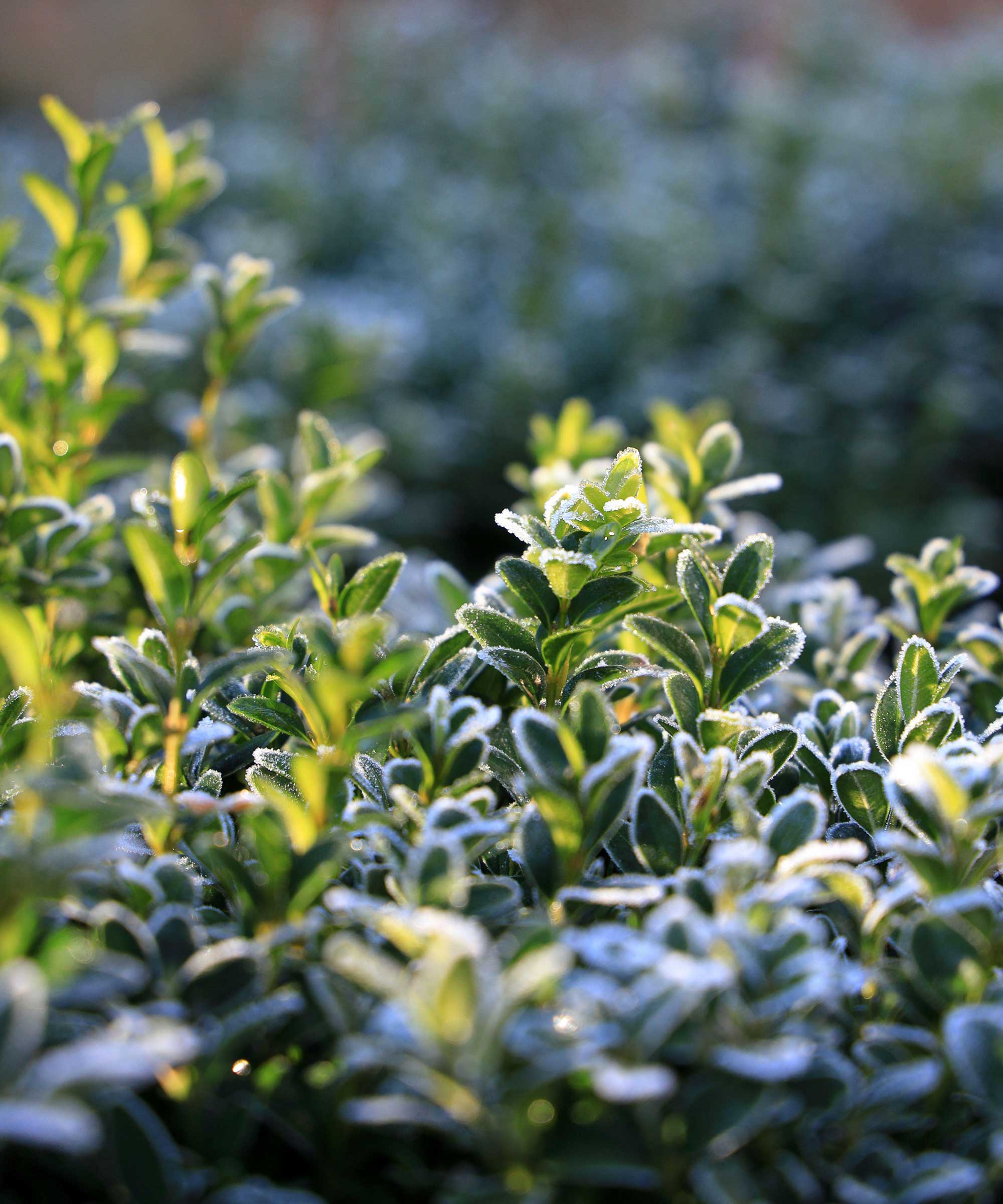
Boxwood is a classic albeit slow-growing choice for evergreen hedging
- Height: 1-20ft
- Spread: 2-20ft
- Hardiness: USDA 5-9
- Best for: Topiary
Anna Ohler, the owner of Bright Lane Gardens nursery, prizes boxwood as her top choice for a privacy shrub.
They are evergreen and exceptionally hardy in harsh winter temperatures, she highlights. What's more, their branches grow thickly and offer an excellent privacy screen.
'Boxwoods can also easily be pruned and shaped into a wide variety of shapes, including rectangular hedges or walls,' Anna continues. They require very little maintenance, but will benefit from annual pruning and some form of protection from heavy snowfall (such as a netting or frame to prevent heavy snow accumulation), she adds.
Try Buxus sempervirens, the American boxwood (from Fast Growing Trees), for a hedging plant that grows to around 12ft tall. Smaller types are also available, such as the 'Titan' variety – also from Fast Growing Trees – which will reach heights up to 6ft.
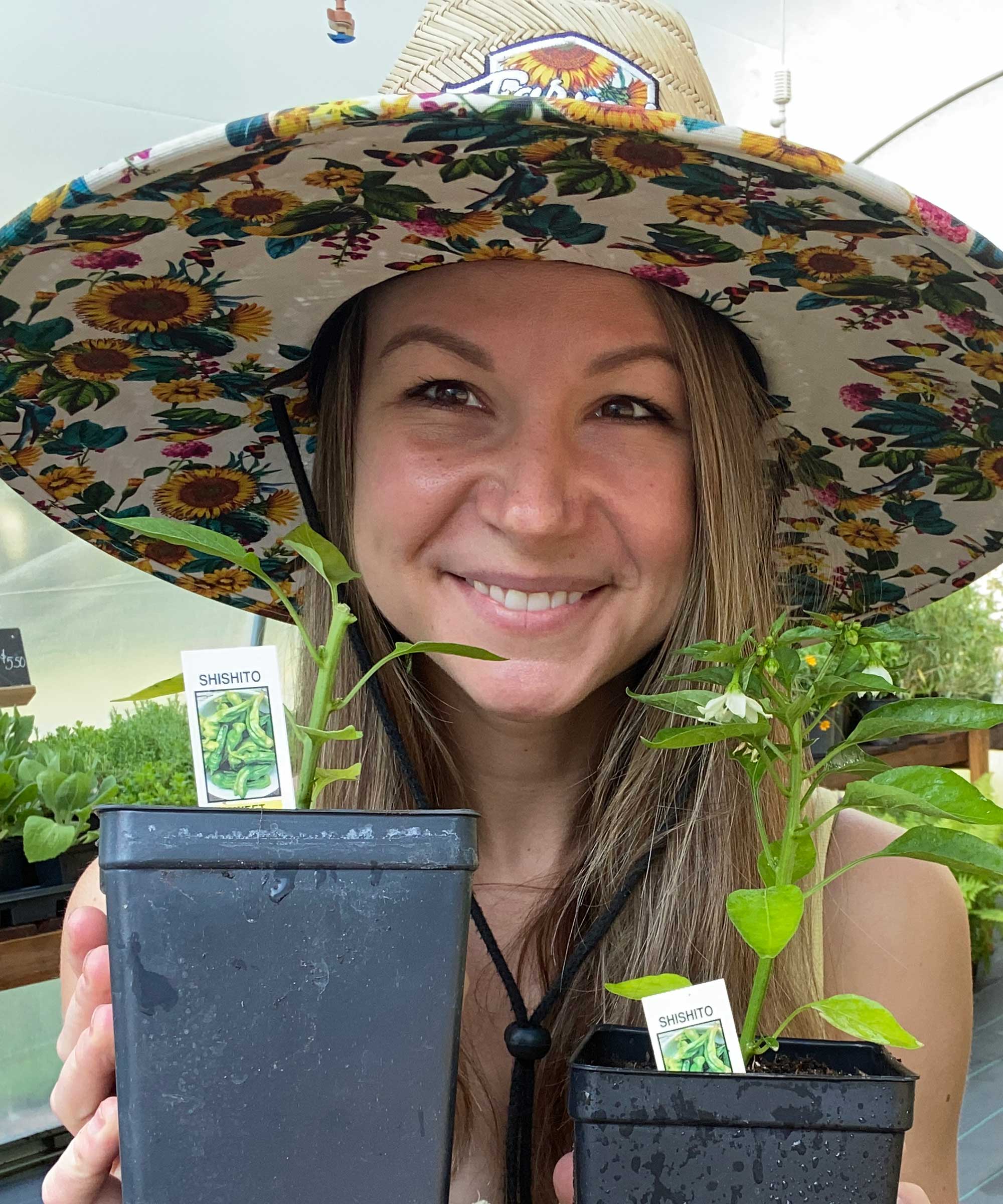
Anna is an avid plant hobbyist and the owner and operator of Bright Lane Gardens, a boutique plant nursery in Northern Michigan. With over a decade of experience in gardening and landscaping, she takes every opportunity to share her knowledge on all things plant related.
5. Juniper
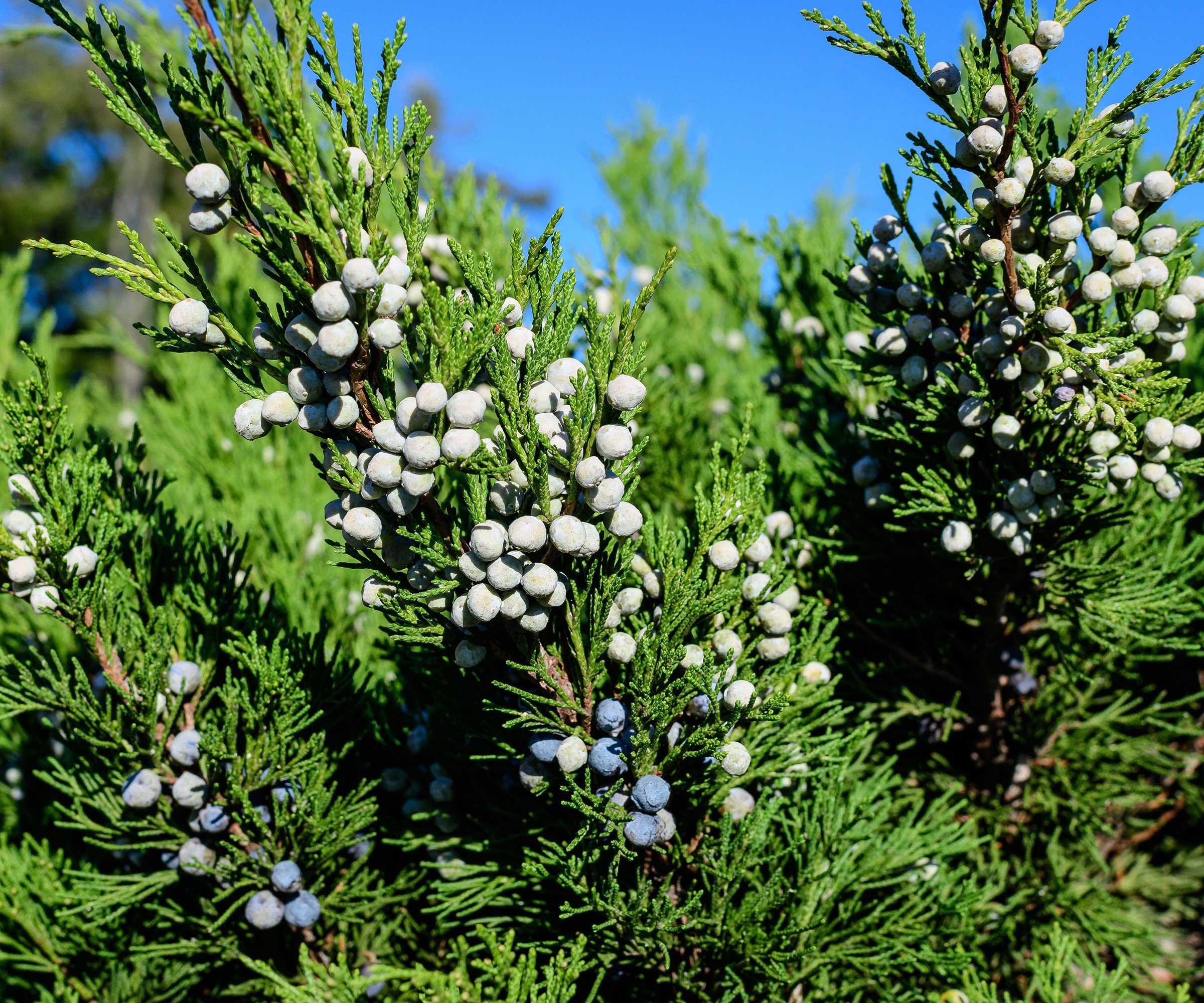
Juniper berries attract birds
- Height: 1-20ft
- Width: 2-15ft
- Hardiness: USDA 3-9, depending on variety
- Best for: Textural, evergreen foliage
Juniper is recommended by stylist and gardener Lisa Fontanarosa, who describes it as a 'wonderful way to create privacy'. It's fairly drought-resistant once established, she adds.
Try 'Blue Arrow', from Nature Hills, if you're looking for height but a compact width. Its attractive blue coloring works well in modern gardens, plus it's deer-resistant.
For a lower, but more spreading, variety, opt for 'Gold Lace', also from Nature Hills. As its name implies, its foliage has a more yellow hue.
6. Bamboo

Bamboo can be used to create a dense screen
- Height: 6-39ft
- Spread: 5-25ft+
- Hardiness: USDA 5-11, depending on variety
- Best for: Tropical gardens
Hardier, evergreen varieties of bamboo can create an effective screen that stays lusciously leafy all year. Planted in large pots, they're an easy way to make a patio feel more private. Alternatively, they can be planted in the ground – but take steps to control their growth, which can be invasive.
A popular, clumping variety is Fargesia rufa, also known as 'Sunset Glow' bamboo, which grows in hardiness zones 5-9. It's a drought-tolerant plant and fast-growing, reaching heights of around 8ft when mature.
7. Southern magnolia
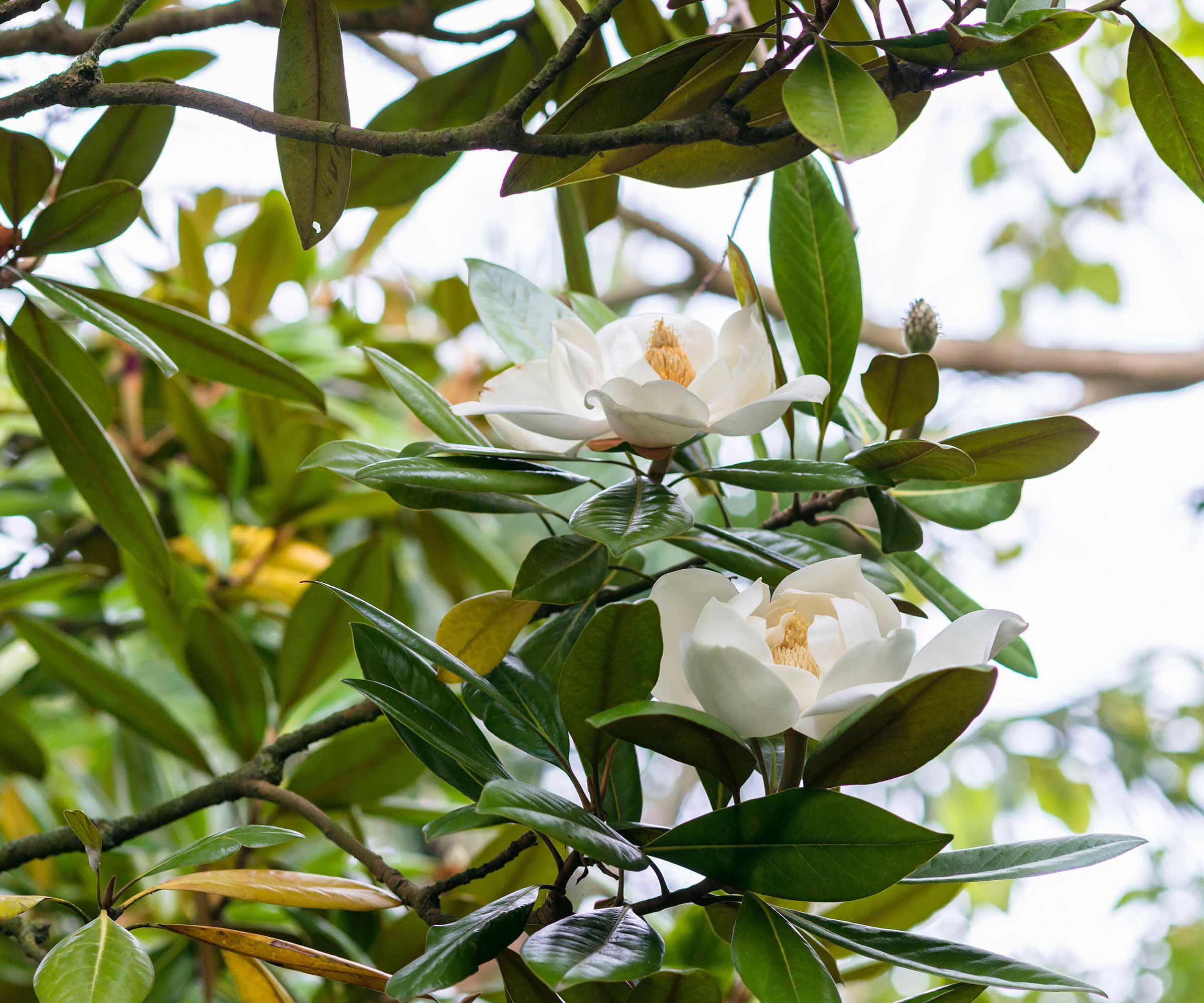
These impressive, evergreen trees have beautiful summer blooms
- Height: 30-50ft
- Width: 15-30ft
- Hardiness: USDA 7-9
- Best for: Large backyards
'Known for its large, glossy, evergreen leaves and fragrant white blossoms, the southern magnolia grows quite large and stately,' says certified master arborist Blake Watkins. Some cultivars, such as 'Bracken's Brown Beauty' have leaves with exposed undersides, making them a showy tree even in the winter, he adds.
They're ideal if you're looking for a stunning specimen tree for a large yard. Note that their roots need plenty of space to grow. 'Make sure to plant it well away from hardscapes,' says Blake.
They thrive in full sun and should be pruned in late winter. Once they have established, they are drought-tolerant trees.

Blake Watkins is a Board Certified Master Arborist who specializes in urban forestry. His work in arboriculture began in non-profit organizations where he coordinated and led volunteer tree planting and pruning projects. Serving as the Operations Partner for the Western Region of Monster Tree Service, Blake comes equipped with extensive experience in multi-year tree management plans, hazardous tree assessments, production crew supervision, and tree protection during construction. He recently became a Registered Consulting Arborist with the American Society of Arboriculture.
8. Camellia

Camellia japonica 'Debbie'
- Height: 4-15ft
- Spread: 6-10ft
- Hardiness: USDA 7-10
- Best for: Impressive blooms
Winter-flowering camellias can be used as specimen plants or planted together to form a dense hedge with their evergreen foliage. They can also thrive in large pots.
Their biggest selling point is their large, peony-like blooms, in shades of red, white, pink, or yellow. They're also well-suited to shadier spots, which can be useful if your yard doesn't get much sun.
Grow camellias in slightly acidic soil and water them with harvested rainwater for best results.
'Yuletide', from Nature Hills, is a popular choice for its striking winter flowers which are red with yellow centers. An alternative option is 'Spellbound', also from Nature Hills, which produces bright pink flowers from late winter into early spring.
9. Japanese laurel
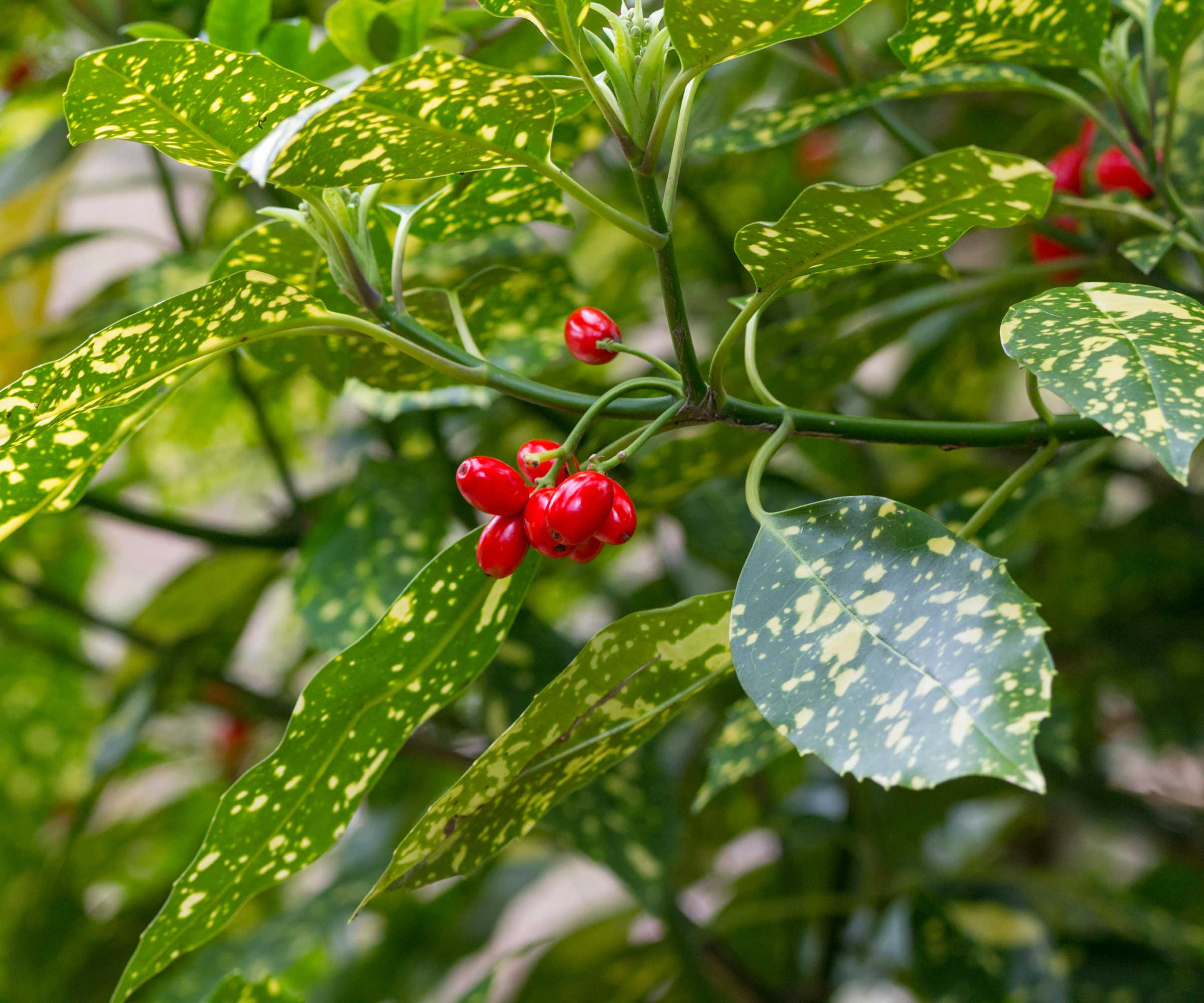
Japanese laurels can be used to create an eye-catching hedge
- Height: 4-10ft
- Width: 4-9ft
- Hardiness: USDA 7-10
- Best for: Variegated leaves
Japanese laurels, or Aucuba japonica, are easy to grow evergreen shrubs that are prized for their speckled foliage in green and gold. They are versatile, tolerating both sun and shade and any type of soil – as long as it's not overly wet. Compact cultivars can be planted in containers.
Like hollies, the female plants need a male plant nearby to produce their bright red berries. You can buy Japanese laurels from Fast Growing Trees.
10. Olive
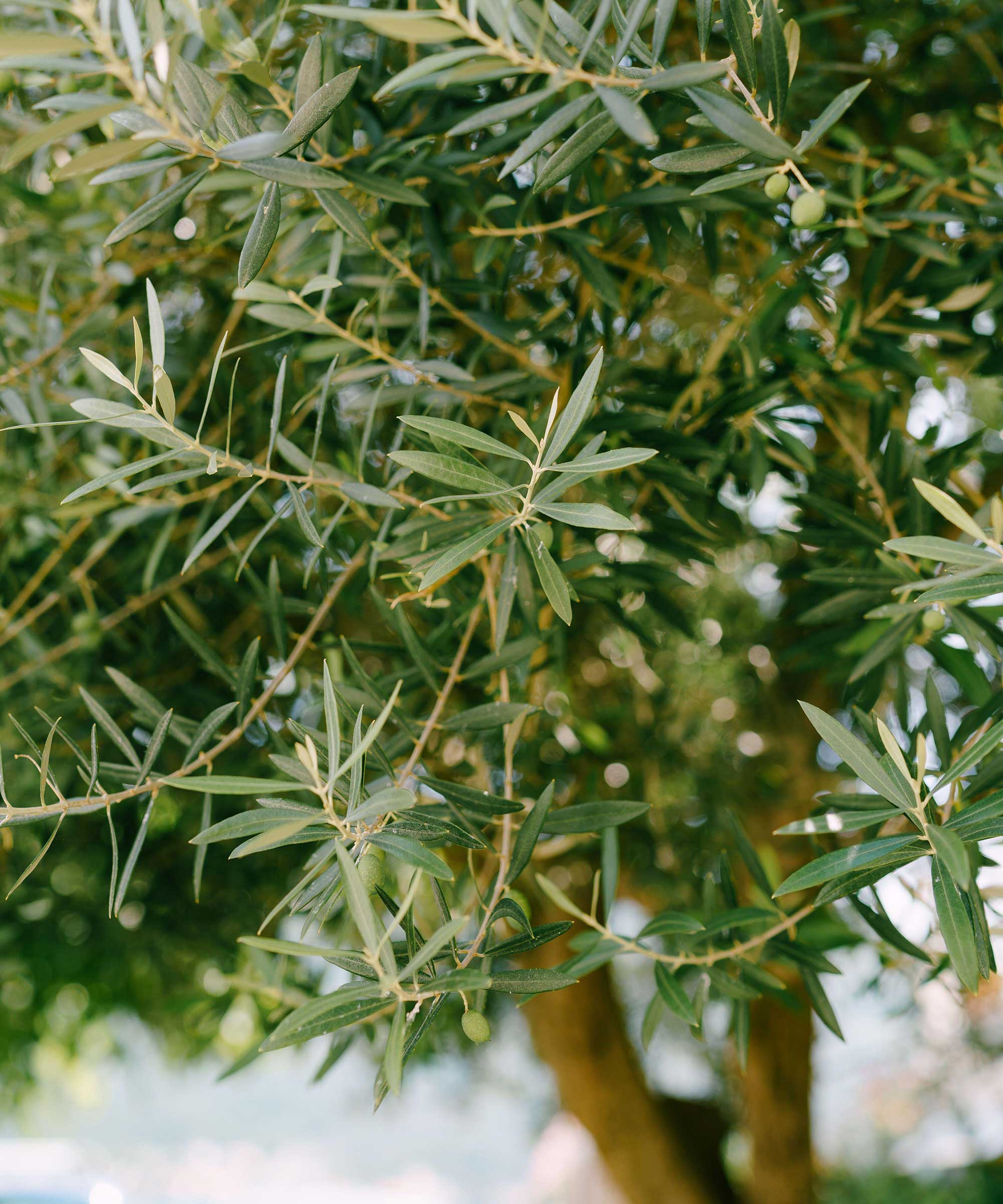
Olives can be grown in pots or in the ground, as long as the soil is well-draining
- Height: 6-30ft
- Width: 6-20ft
- Hardiness: USDA 8-10
- Best for: Mediterranean-inspired gardens
Olive trees – Olea europaea – are another recommendation from Blake. With their silvery-green leaves, they offer a unique aesthetic for winter gardens, he says.
'They maintain year-round greenery, providing a distinctive look and contributing to privacy,' he says, adding that they require full sun.
They are a popular choice for pots. Just bear in mind that fallen olives can stain patios, driveways, and paths. 'Make sure to select fruitless cultivars for planting near hardscapes,' Blake advises.
FAQs
What are some good privacy trees for winter?
Many evergreen trees, including southern magnolias and olives, work well in backyards to create screening. Just remember to check the mature height and spread before you plant, to ensure they're suitable for the space you have.
If you're planting in a small yard, there are some privacy trees that can be grown in pots that hold onto their leaves throughout winter.
What are the best winter privacy plants for shade?
Camellias are good plants for shade. For partial shade, hollies, Japanese laurels, boxwood, and junipers are suitable choices, as are some varieties of bamboo.
As well as planting for privacy in your winter garden, there are other ways to enhance your seasonal outdoor scheme. Planting a winter container display will bring extra color and interest to your patio or porch, while there are plenty of beautiful outdoor Christmas decor ideas that will bring a sense of festive sparkle to the space.

Holly started writing about gardening five years ago, and she is a regular contributor to Homes & Gardens. She has also written many gardening features for Woman & Home and Real Homes, too. She has previous experience as a professional gardener, where she helped to plant and maintain private gardens. Holly has also looked after allotment plots over the years and loves to grow her own flowers and veggies from seed. In her spare time, she enjoys visiting local gardens, botanical drawing, and tending to her ever-growing collection of houseplants.